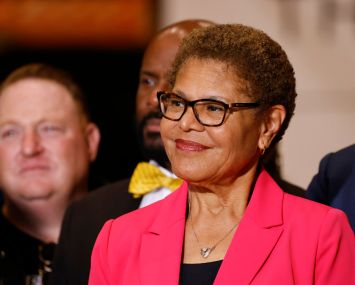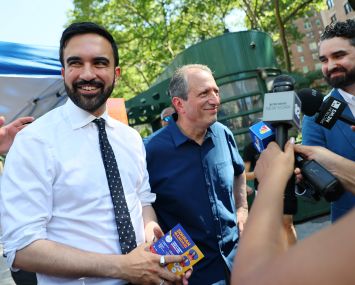MTA Fighting Possibility of Reducing Service Without Congestion Pricing
By Mark Hallum June 10, 2024 5:22 pm
reprints
Metropolitan Transportation Authority Chairman Janno Lieber surfaced Monday to outline the agency’s next steps after New York Gov. Kathy Hochul abruptly halted congestion pricing last week.
Shrinking its budget and prioritizing critical repairs to make sure the system “doesn’t fall apart” will be the topics in the MTA’s next board meeting toward the end of June, but major contracts that will modernize the subways may fall by the wayside without a dedicated funding stream, according to Lieber.
On June 5, Hochul raised ire by confirming media reports that she was “indefinitely” pausing the congestion pricing program, meaning the MTA would no longer be getting $1 billion per year in dedicated funding from tolling most motorists traveling into Manhattan’s central business district.
“I’m also paying special attention to our federal funding situation and how we preserve the grants that have already been awarded, including the [$3.4 billion committed to the] Second Avenue subway phase two. … We’re gonna do our best to prevent it from being put at risk, though that is a challenge,” Lieber said in a press conference. “The priority is that we’re gonna fight like hell to make sure we don’t have to reduce service, which has been an area of incredible progress in the last couple of years.”
Lieber did not comment on the possibility that the governor’s decision was politically motivated to help Democrats retake the U.S. House of Representatives, saying it was beyond his purview.
Electric buses and projects making stations compliant with the Americans With Disabilities Act will be deprioritized as the MTA is going to focus now only on 70 percent of the capital program pertaining to keeping the system in a state of good repair, Lieber said.
In response to reporters’ questions, Lieber addressed rumors that he might resign due to Hochul’s decision to pause congestion pricing 25 days before it was scheduled to begin and after five years of work from the MTA. Simply put, he said his days with Silverstein Properties on the World Trade Center project prepared him for setbacks, and that he had no plans to quit in protest.
While the MTA reworks its finances, Lieber said the agency would continue to pressure Hochul’s office to reinstate congestion pricing and that any plans to scrap the $500 million in infrastructure that has already been installed for it is “TBD.”
Mark Hallum can be reached at mhallum@commercialobserver.com.


